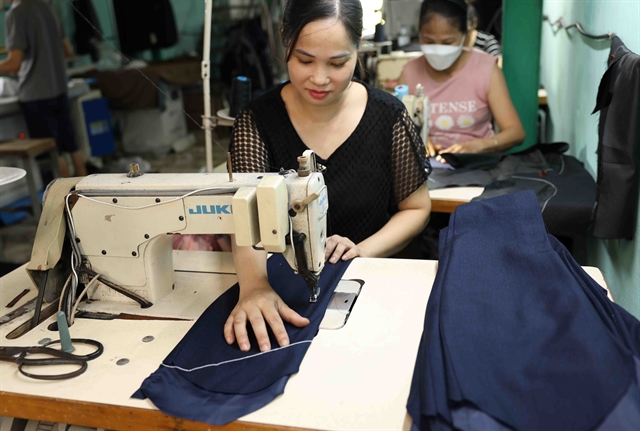 Society
Society


|
| Rural workers in Từ Thuận sewing village in Vân Từ Commune, Phú Xuyên District in Hà Nội. — VNA/VNS Photo Vũ Sinh |
HÀ NỘI — Hà Nội will focus on innovating vocational training for rural workers to meet the requirements of agricultural and rural industrialisation and modernisation.
It is the main target highlighted in the Plan No 316-KH/TU, which has been signed by Standing Deputy Secretary of the Hà Nội Party, Committee Nguyễn Văn Phong.
The plan aims at realising the Directive 37-CT/TU, issued on July 10 last year by the Central Party Secretariat, on innovating vocational training for rural workers.
It clearly states that the work is responsibility of Party committees, authorities at all levels, organisations and the whole society for socio-economic development and sustainable poverty reduction.
In the plan, the city identifies farmers as the centre of agricultural development, rural economy growth and new rural construction.
It strengthens the role of Party committees, the Fatherland Front, and socio-political organisations, at all levels, in innovating vocational training for rural workers.
Authorities, localities, agencies and units, based on their actual situation, will set out comprehensive, synchronous and key targets, tasks and solutions to effectively implement innovations in vocational training.
The plan realisation must be serious, practical, effective and synchronous.
It promotes the leadership and direction of Party committees at all levels, especially the heads and calls for participation of the entire political system with a spirit of high determination and great effort.
The plan sets out five main groups of tasks and solutions.
Party committees, authorities, the Fatherland Front and socio-political organisations must strengthen their leadership role, create unity in awareness and action, viewpoints, goals and training policies to improve human resources quality.
The work should shift labour structure and economic structure towards increasing the proportion in industry and services.
The plan’s purposes are creating jobs, increasing income, improving the people’s material and spiritual life, building new rural areas and contributing to sustainable poverty reduction.
Party committees and authorities, especially leaders, must regularly lead, direct, strengthen inspection and supervision, attaching importance to the innovation quality and effectiveness.
They should develop training plans in line with the labour market, socio-economic development goals and people's needs for employment.
In particular, vocational training must be organised in association with the model of good farmers and businessmen, towards economic restructuring and large-scale production. — VNS




